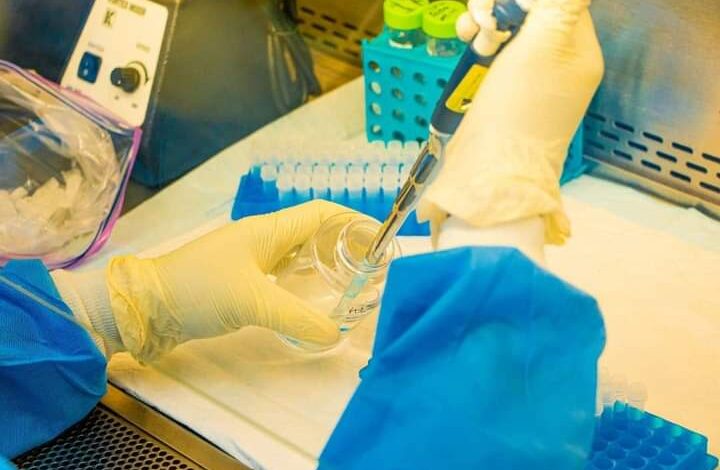#COVID19: Nigeria, South Africa, 4 Others To Start mRNA Vaccine Production
Plans are underway for Egypt, Kenya, Nigeria, Senegal, South Africa, and Tunisia to get the continent to produce more vaccines against COVID-19 as Africa produces only 1 per cent of the vaccines it administers.

Six African countries including Nigeria and South Africa are set to start manufacturing the mRNA vaccine as a dearth of vaccine access equity follows the COVID-19 pandemic in the continent, the World Health Organisation (WHO) said.
According to WHO, mRNA vaccines are molecule vaccines that teach human cells how to make a protein that will trigger an immune response which will then create antibodies. COVID-19 vaccines are made from the prototype of mRNA vaccine.
Tedros Adhanom Ghebreyesus, the WHO’s Director-General, on Thursday, Feb. 17, said the health body is ramping up efforts in Egypt, Kenya, Nigeria, Senegal, South Africa, and Tunisia to establish mRNA vaccine production in due course.
Ghebreyesus made the announcement at a ceremony hosted by the European Council, France, South Africa, and WHO.
“No other event like the COVID-19 pandemic has shown that reliance on a few companies to supply global public goods is limiting, and dangerous,” the WHO chief said in a statement on Friday.
“In the mid-to-long term, the best way to address health emergencies and reach universal health coverage is to significantly increase the capacity of all regions to manufacture the health products they need, with equitable access as their primary endpoint.”
In the heat of debates around COVID-19 vaccine patent waiver and vaccine access equity in Africa from its Western counterpart, the global mRNA technology transfer hub was established in 2021 to support manufacturers in low- and middle-income countries to produce their own vaccines, ensuring that they have all the necessary operating procedures and know-how to manufacture mRNA vaccines at scale and according to international standards.
Africa, with 54 countries and 1.2 billion people, produces only 1 per cent of the vaccines it administers, with 99 per cent imported.
While rich countries race to vaccinate their populations against COVID-19, refusing to waive the vaccine patent, African countries find themselves at the back of the queue, waiting on donations.
Many African countries were unable to meet the global target of vaccinating 70 per cent of their populations at the end of 2021; only Mauritius and Seychelles have, so far, met the target.
Experts say Africa’s reliance on foreign aid and lack of manufacturing are significant reasons only 11 per cent of the continent’s people have been fully vaccinated against COVID-19.
The WHO has said that this would need a sixfold increase in weekly vaccinations — from 6 million people to 36 million.
“Looking into the future, we have to waive our ineptitude and dependency and come up with our own patents instead of carrying patent waiving placards every time there is a new disease,” said Oyewale Tomori,a professor of virology and Chairman, Expert Review Committee on COVID-19 in Nigeria.
With the mRNA technology transfer hub created, countries on the list will expand their manufacturing capacity for other products while they decide what kinds of vaccines and other products they need to address their health priorities including insulin to treat diabetes, cancer medicines and, potentially, vaccines for other priority diseases such as malaria, tuberculosis and HIV, read the WHO statement.
Cyril Ramaphosa, South African President, said the new development “is very important to us since it means mutual respect, mutual recognition of what we can all bring to the party, investment in our economies, infrastructure investment and, in many ways, giving back to the continent.”
Emmanuel Macron, French President, said improved public health benefits, supporting African health sovereignty and economic development are the principal goals of strengthening local production in Africa.
“In an interconnected world, we need stronger and new partnerships between countries, development partners and other stakeholders to empower regions and countries to fend for themselves, during crises, and in peacetime,” said Macron.
The statement said WHO and partners would work with the beneficiary countries to develop a roadmap and put in place the necessary training and support so that they can start producing vaccines as soon as possible.
Support Our Journalism
There are millions of ordinary people affected by conflict in Africa whose stories are missing in the mainstream media. HumAngle is determined to tell those challenging and under-reported stories, hoping that the people impacted by these conflicts will find the safety and security they deserve.
To ensure that we continue to provide public service coverage, we have a small favour to ask you. We want you to be part of our journalistic endeavour by contributing a token to us.
Your donation will further promote a robust, free, and independent media.
Donate HereStay Closer To The Stories That Matter




